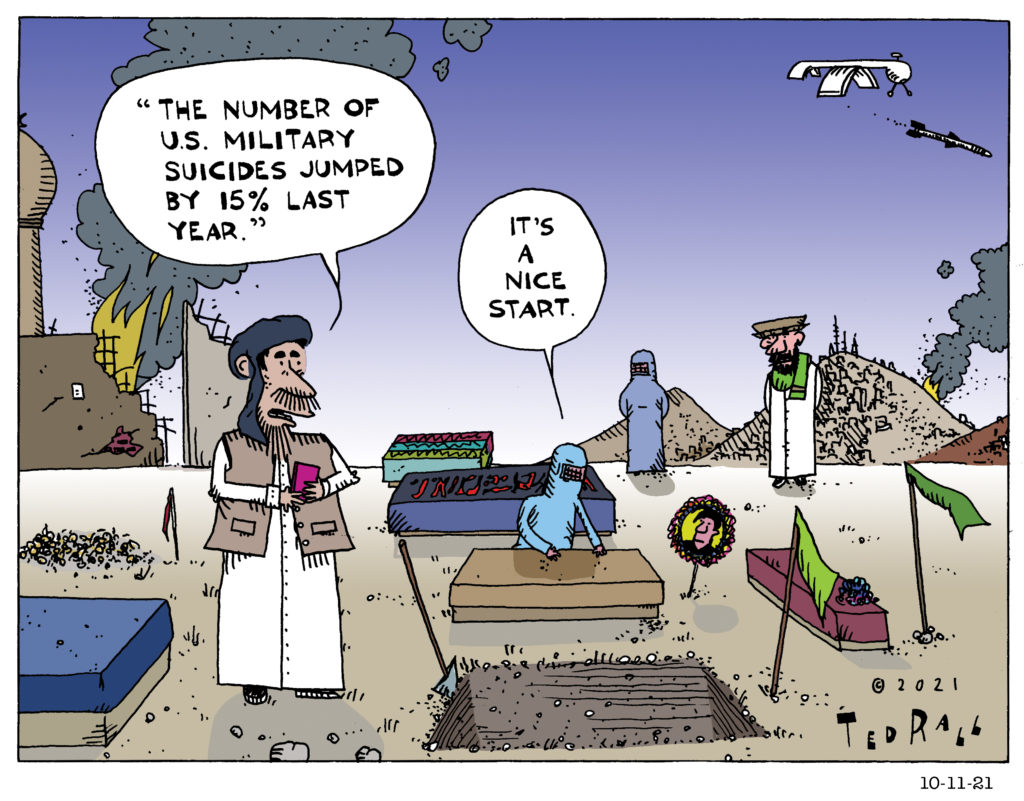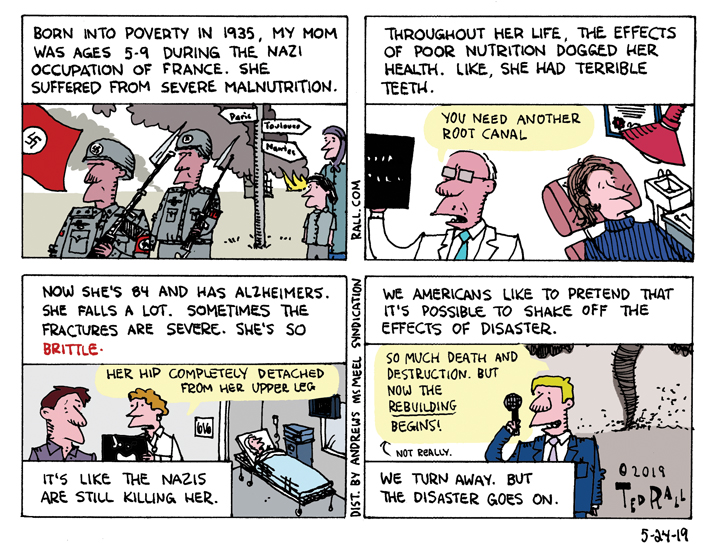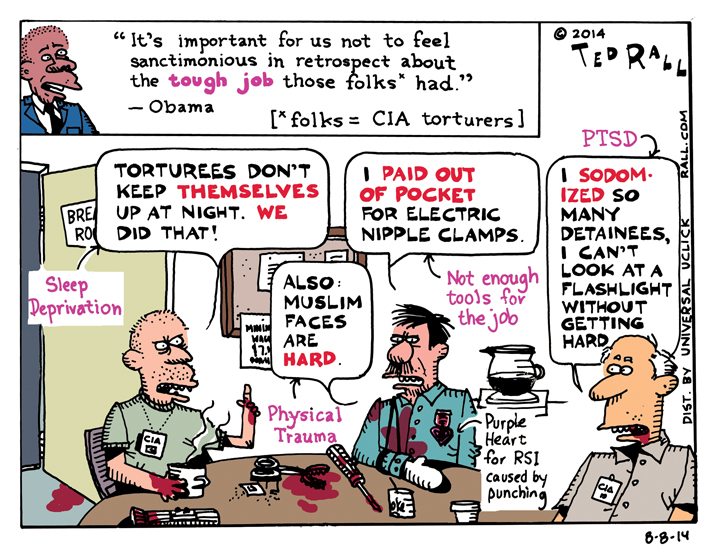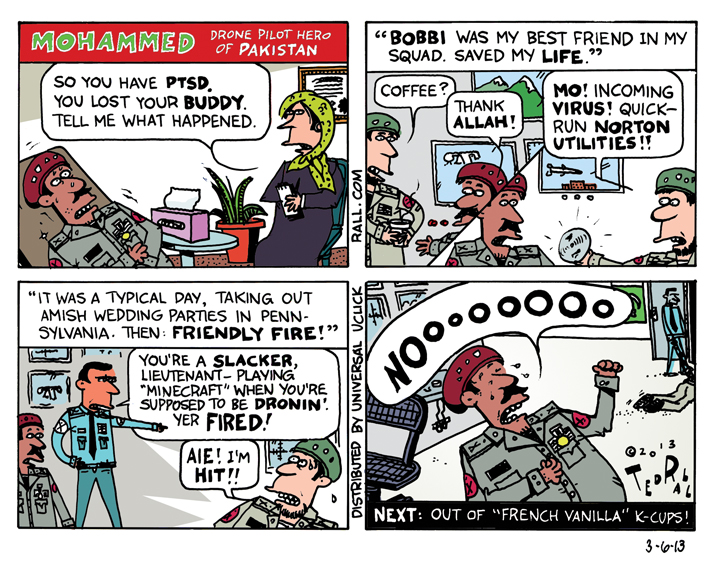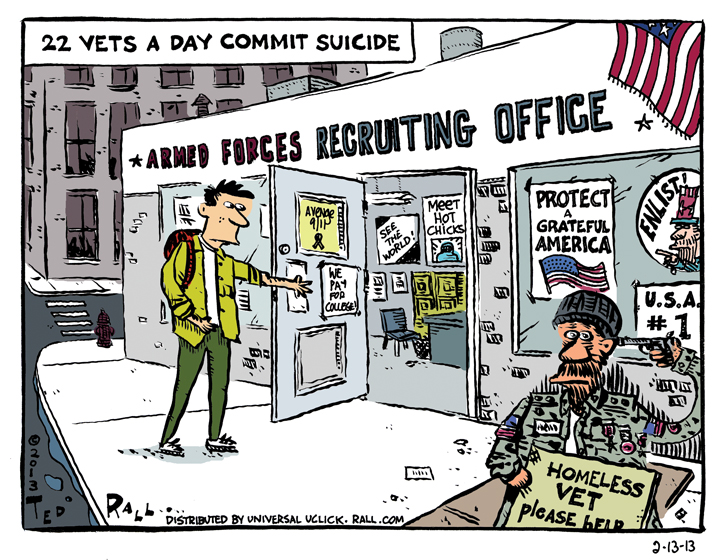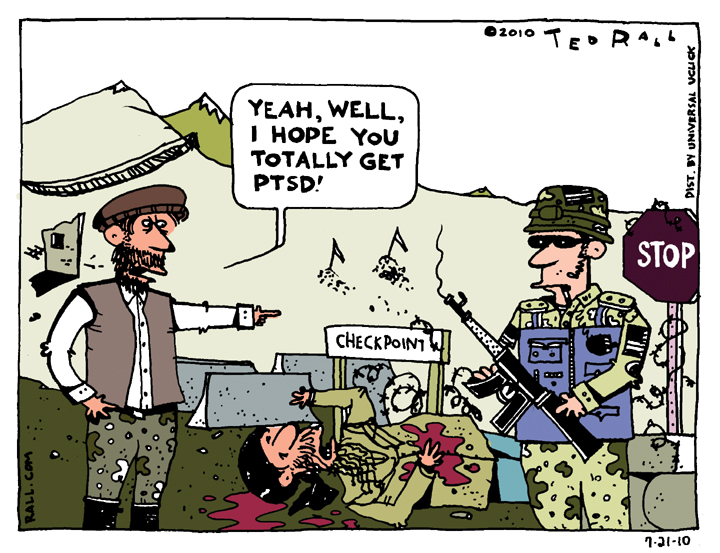Editorial Cartoonists Ted Rall (from the Left) and Scott Stantis (from the Right) take a slight detour away from breaking news to discuss crucial issues flying under the radar. But first they contextualize the blockbuster $787 million settlement between Fox News and Dominion Voting Systems. Does this mean the beginning of the end for Fox News, or does it just confirm what we all knew Fox was? Next, Ted and Scott discuss their own Post-Traumatic Stress Disorder following high-profile controversies in their careers. Inspired by recent revelations by actress and comedian Kathy Griffin,in her struggles with PTSD, following fallout from her own controversial holding up a bloody Donald Trump mask in 2017. Finally, Scott and Ted delve into the horrid state of the American prison system, following an award to thousands of New Yorkers who were wrongly held in solitary confinement in local jails. They discuss the ghastly conditions and abuses now commonplace in prisons across the country, from malnutrition to grossly overcrowded prison cells. Ted and Scott sound the alarm on an inhumane system right here in the home of the brave. Will anyone listen?
Watch the Video Version of the DMZ America Podcast:
DMZ America Podcast Ep 98 Sec 1: Fox News Settles with Dominion Voting Systems
DMZ America Podcast Ep 98 Sec 2: It’s Not Just Kathy Griffin. We Have PTSD Too.
DMZ America Podcast Ep 98 Sec 3: The Horrid State of Our Prisons

